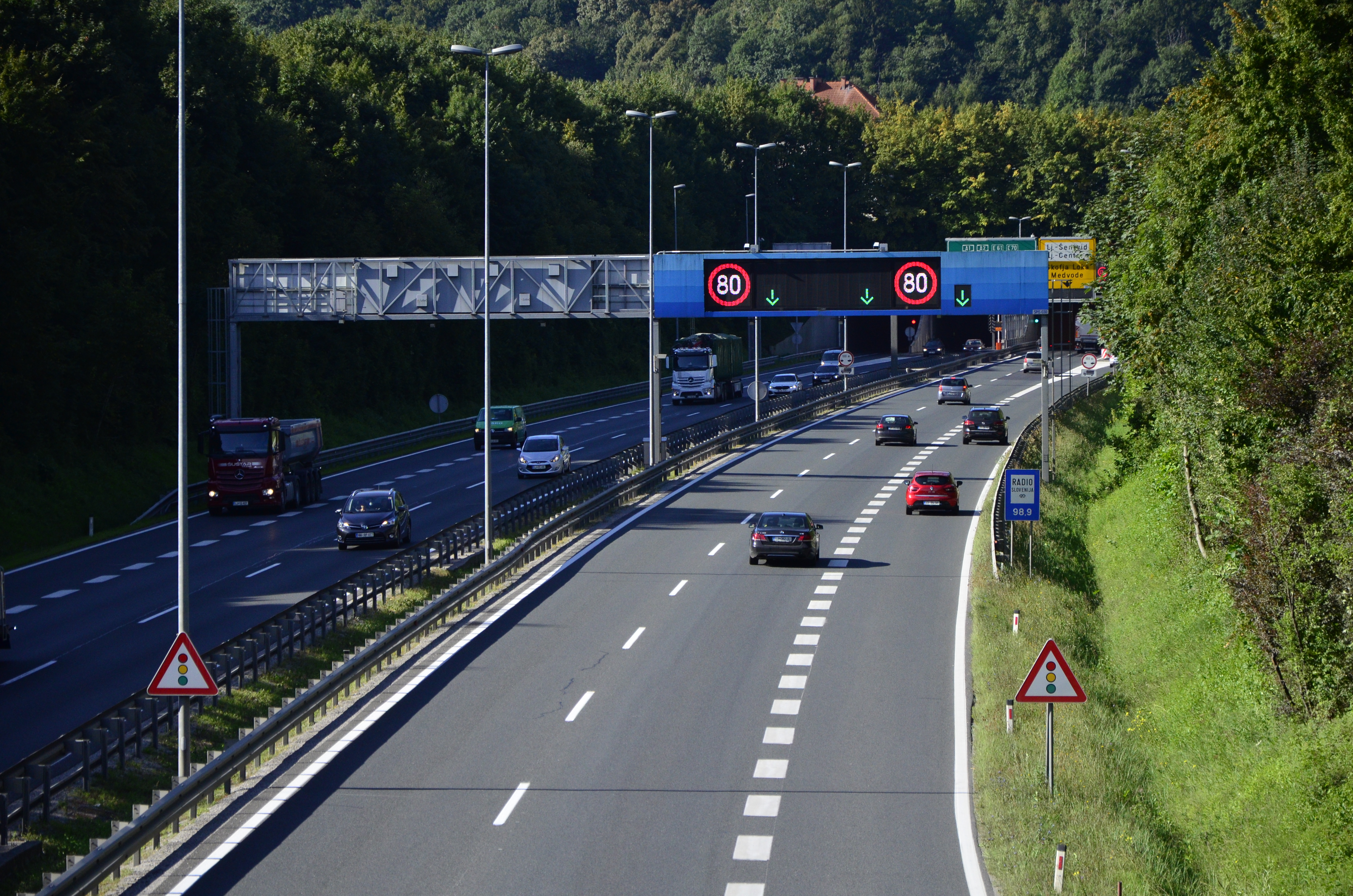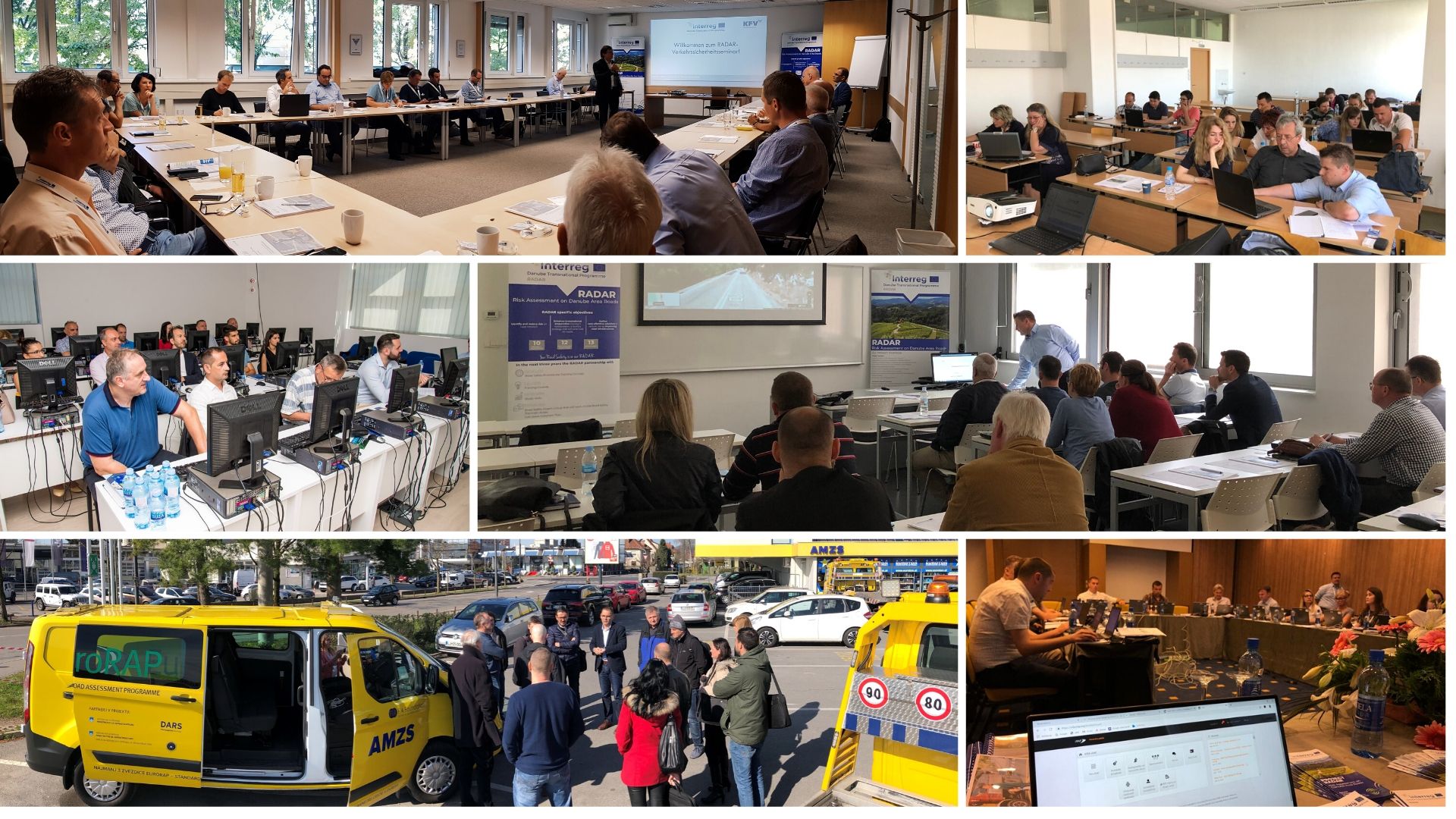RADAR - STRIVING FOR 5-STAR ROAD INFRASTRUCTURE FOR ALL ROAD USERS
21-05-2021
Roads knit people, communities, and markets together. They are the lifeblood of cities and regions. More so than any other mode, roads remain the predominant and universal transport network – but they are also the deadliest.

Death rates in many countries in the Danube area are higher than the EU average. 3,200 people died in eight Danube area countries throughout 2019 alone, a similar number in 2018 and 2017.
Many countries lack professional capacity and approaches to the problem vary. On one hand, there are highly developed and highly traffic-laden road systems, and on the other hand, there are countries that are still developing their road network.
340 ROAD SAFETY EXPERTS AND PROFESSIONALS RICHER IN KNOWLEDGE OF COST-EFFECTIVE COUNTERMEASURES
Since 2018, a consortium of 19 partners from 13 countries across Europe joined their forces within Risk Assessment on Danube Area Roads (RADAR) project in helping the relevant organisations in the Danube area to identify risk on their road networks by raising capacity and enhancing transnational cooperation in the sector. Specifically, RADAR aims to overcome the lack of institutional capacity and the capacity of technical personnel and engineers responsible for road safety in the Danube area.
Marko Ševrović, Lead Partner of RADAR, European Institute of Road Assessment - EuroRAP (EIRA) emphasises that "history teaches us that if we lose focus on road safety due to the things that suddenly become more important than our lives, very soon the consequences become obvious. It is because of this reason we must not stop investing in safer roads. Every life is important, every life count, and we already have the knowledge and the tools to save lives and reduce trauma on our roads."
By using the most comprehensive methodology – star-rating methodology (EuroRAP) – that covers most of the new Road Infrastructure Safety Management Directive 2019/1936/EC (RISM) requirements, our project group of distinguished road safety experts successfully implemented Road Infrastructure Safety Training Courses. The concept of courses was comprised of local face-to-face training in eight partnering countries, one online training course, and two additional webinars. Our team of well-experienced mentors raised the capacity of more than 340 technical employees of road safety organisations in existing best practices, tools, and the most comprehensive methodology.

THE RADAR PROJECT WILL BENEFIT ROAD SAFETY FOR THE NEXT 20 YEARS
Besides training courses, RADAR addresses road safety at the operational level with a Danube Road Safety Expert Group (RSEG). The international group of road experts combines political and strategic representatives of road safety organisations, thus project partners, associated strategic partners, and stakeholders, representatives of relevant EU and international organisations, to define provisions for road safety for each country and the whole region.
The wide geographical coverage of RADAR is designed to raise the standard of infrastructure safety across the network of the Danube region where those least advanced in road safety learn from the best. By providing knowledge for road infrastructure investments, RADAR’s contributions will be measured in lives saved for the next 20 years.
With training courses, four study visits, four RSEG meetings, and eight pilot actions, RADAR tackles the infrastructural shortcomings across the region regarding the four thematic areas:
- Safer Roads Investment Plans,
- Provisions for Vulnerable Road Users,
- Smart Speed Management Infrastructure,
- Road Safety Near Schools.
The harmonisation of knowledge among the operational personnel of responsible organisations throughout the Danube area allows the implementation of the infrastructural solutions in a consistent and successful way.
WHAT’S NEXT?
Firstly, with the start of the UN Global Road Safety Week (May 17-23), RADAR joined forces with the road safety community across the globe calling for a 30km/h speed limit to become the default speed limit in cities, towns, and villages. After all, smart speed management infrastructure is one of the main thematic areas within the project.
Olivera Rozi, Project Director, European Institute of Road Assessment - EuroRAP (EIRA) continues: "Above all - by supporting and contributing to the Second UN Decade of Action for Road Safety, RADAR is also delivering the very first region-wide Danube Infrastructure Road Safety Improvement Strategy. To show that RADAR solutions actually work, pilot actions are currently being implemented and evaluated in all partnering countries corresponding to all thematic areas – including the (smart) speed management.”
The extension of the project approved by the JS Danube Transnational Programme has also allowed us to build on the work already done within four thematic areas and two recently emerged road safety issues. The inclusion of analysis, recommendations, and action plans related to post-COVID-19 pandemic and investments in road safety as well as the guidelines on how to implement the amended Road Infrastructure Safety Management Directive 2019/1936/EC (RISM) in the Danube area are very important for the future of road infrastructure safety in Danube area as well as in Europe. With these six thematic areas reports the strategy will become the most comprehensive one in Europe at this moment. It will serve EU countries even outside the Danube area and support the improvement of road infrastructure safety in the region for all road users.
RADAR has also prepared infographic concepts of cost-effective countermeasures on four thematic areas to reach the (three-or-better) stars quality of road infrastructure. The factsheet on the additional two thematic areas (COVID-19 pandemic and implementation of the directive) are underway and will be launched in June. The integration of infographics on all six thematic areas will fill the role of full-time ambassador for awareness-raising of the need to improve the safety of road infrastructure long after the project’s official end.
Advocating for safer roads does not and will not end with this project.
